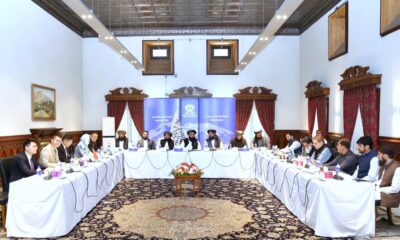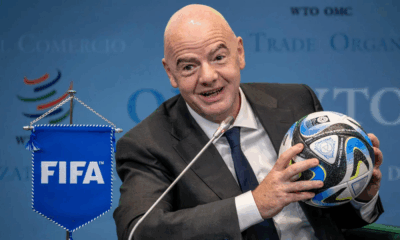World
Irish Prime Minister unexpectedly quits
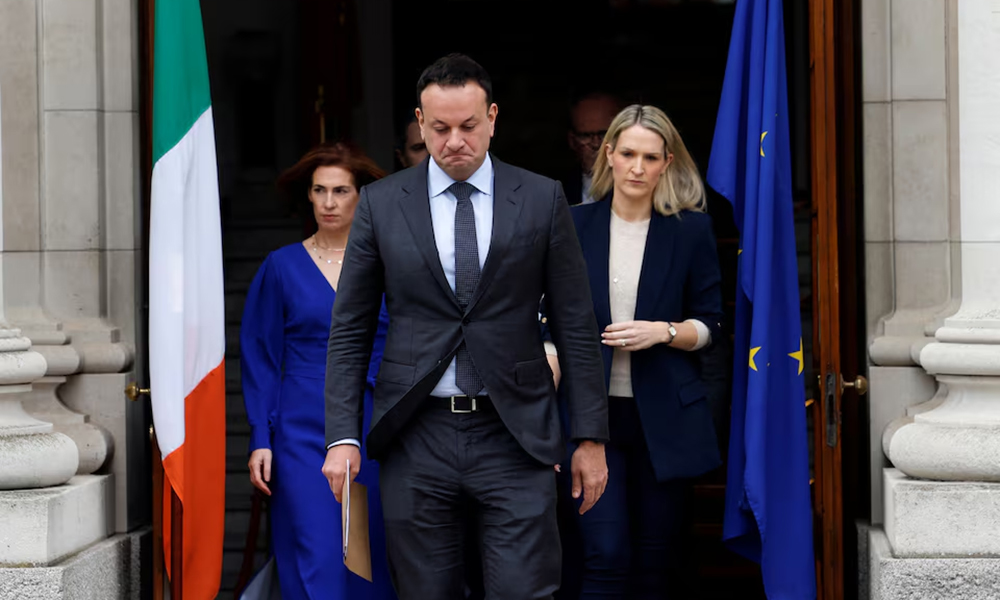
Leo Varadkar announced on Wednesday he was stepping down as Ireland’s prime minister in a surprise move, saying the country’s coalition government would stand a better chance of reelection under another leader, Reuters reported.
Varadkar’s Fine Gael party will open nominations for a new leader on Thursday with the results to be announced on April 5. Parliament would then vote on that person succeeding Varadkar as prime minister after it returns from Easter recess on April 9.
The shock departure of Varadkar, who became the first gay prime minister of the once-staunchly Catholic country in 2017 and returned to the premiership just 15 months ago, does not trigger a general election. A vote must be held by March 2025.
“My reasons for stepping down are both personal and political,” Varadkar, 45, told a hastily arranged news conference at government buildings in Dublin, sounding emotional as he spoke.
“But after careful consideration, and some soul searching, I believe that a new Taoiseach (prime minister) and a new leader will be better placed than me to achieve (the coalition government’s re-election).”
His successor will have 12 months to try to claw back the wide opinion poll deficit that both Fine Gael and their largest coalition partner Fianna Fail have to the main opposition Sinn Fein party, the former political wing of the Irish Republican Army, read the report.
Polls suggest the current three-party coalition also stands a chance of being re-elected, though Fine Gael will have to do without around one-third of its sitting lawmakers who have said they will not seek re-election.
Bookmaker Paddy Power made 37-year-old Higher Education Minister Simon Harris, who was health minister during the COVID-19 pandemic, the clear favourite to take over from Varadkar.
Other contenders include Public Expenditure Minister Paschal Donohoe and Justice Minister Helen McEntee. Enterprise Minister Simon Coveney, a former deputy prime minister who lost to Varadkar in the 2017 leadership election, ruled himself out.
In a weighted vote, Fine Gael’s 54 lawmakers account for 65% of the electorate, meaning a candidate can quickly gain momentum with the public support of colleagues. The remaining votes are split between party members and local councillors.
“The problem is that there is no natural stand out, one of the problems of being in power for so long is that all of them come with the baggage of longevity in office,” said David Farrell, professor of politics at University College Dublin.
“Harris probably has the edge. He’s a great communicator and could make a difference in the election.”
Varadkar’s government has overseen a sharp economic recovery from the pandemic but has struggled to tackle a decade-long housing crisis and more recently the pressure on services from record numbers of asylum seekers and Ukrainian refugees, Reuters reported.
He also led Ireland through Brexit talks and the start of the COVID-19 crisis, while Ireland voted to remove a ban on abortion under his leadership. Varadkar announced publicly that he was gay in a radio interview during the 2015 referendum campaign that successfully legalised same-sex marriage.
However, he suffered an embarrassing defeat this month when a large majority of voters rejected proposals to replace constitutional references to a mother’s “duties in the home”.
The leaders of Varadkar’s coalition partners said they were surprised when he let them know of his plans at a regular weekly meeting on Tuesday, adding they would both work with his successor to fulfil the government’s mandate.
According to Reuters a new prime minister, whoever it is, would not change the direction of the coalition’s policy programme.
A small crowd watched from the gates of government buildings as Varadkar made his announcement. Officials, including one junior minister from the Green Party, looked out of open windows onto the courtyard of government buildings as Varadkar spoke.
As recently as last weekend, Varadkar was in Washington where he met U.S. President Joe Biden for St Patrick’s Day celebrations and talks on subjects including the Israel-Hamas conflict and the Belfast/Good Friday Agreement.
Varadkar said it was the right time for him to step down, that he had nothing else lined up and that there was no “real reason” behind his decision.
“Politicians are human beings. We have our limitations. We give it everything until we can’t anymore and then we have to move on,” he said.
Ahead of Varadkar’s surprise departure, Reuters World News daily podcast recorded a special episode, opens new tab looking at the debate around Irish unity.
World
Trump says India, Pakistan agree to ‘full and immediate ceasefire’

U.S. President Donald Trump said on Saturday that India and Pakistan had agreed to a “full and immediate ceasefire” after a fourth day of strikes and counter-strikes against each other’s military installations.
Pakistan’s foreign minister also said both countries had agreed to a ceasefire “with immediate effect” and India’s foreign ministry said it would start at 5 p.m. Indian time (1130 GMT).
“After a long night of talks mediated by the United States, I am pleased to announce that India and Pakistan have agreed to a FULL AND IMMEDIATE CEASEFIRE. Congratulations to both Countries on using Common Sense and Great Intelligence,” Trump said in a post on Truth Social.
The sudden announcement came on a day when fears spiked that the countries’ nuclear arsenals might come into play as Pakistan’s military said a top military and civilian body overseeing its nuclear weapons would meet.
But Pakistan’s defence minister later said no such meeting was scheduled.
At the same time, officials from both sides showed a willingness to take a step back following the day’s exchanges, as the combined civilian death toll on the two sides rose to 66.
“Pakistan and India have agreed to a ceasefire with immediate effect,” Pakistani Foreign minister Ishaq Dar posted on X. “Pakistan has always strived for peace and security in the region, without compromising on its sovereignty and territorial integrity!”
India’s foreign ministry said that the head of Pakistan’s military operations called his Indian counterpart on Saturday afternoon and it was agreed that both sides would stop all firing.
The two heads will speak to each other again on May 12, the ministry added.
The fighting began on Wednesday when India carried out strikes on what it said was “terrorist infrastructure” in Pakistani Kashmir and Pakistan, two weeks after 26 people were killed in an attack on Hindu tourists in Indian Kashmir.
Pakistan denied India’s accusations that it was involved in the tourist attack. Since Wednesday, the two countries have exchanged cross-border fire and shelling, and sent drones and missiles into each other’s airspace.
The countries have been locked in a dispute over Kashmir since they were born after the end of British colonial rule in 1947. Hindu-majority India and Islamic Pakistan both claim Kashmir in full but rule it in part.
They have gone to war three times since, including twice over Kashmir, and clashed several times.
India blames Pakistan for an insurgency in its part of Kashmir that began in 1989 and has killed tens of thousands. It also blames Pakistani Islamist militant groups for attacks elsewhere in India.
Pakistan rejects both charges. It says it only provides moral, political and diplomatic support to Kashmiri separatists.
(Reuters)
World
US offers to help India and Pakistan start talks, G7 also urges dialogue
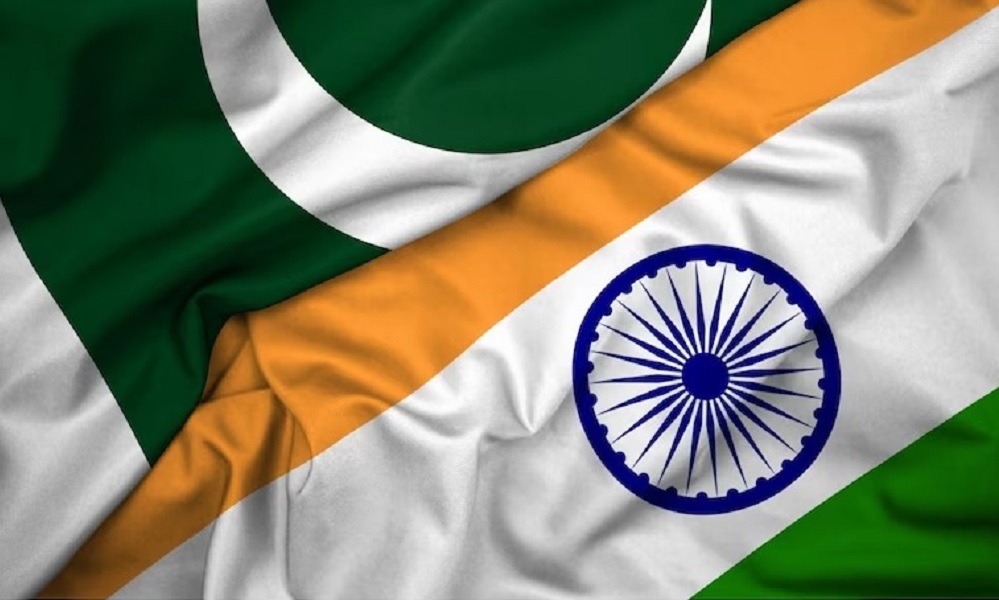
The U.S. government said it offered assistance to make India and Pakistan start “constructive talks” while the Group of Seven (G7) major countries also urged the Asian neighbors to engage in direct dialogue amid heightened hostilities.
World powers have raised the alarm over the latest escalation in the decades-old India-Pakistan rivalry. India hit Pakistan with air strikes and missiles on Wednesday and since then the nuclear-armed countries have been clashing daily while launching strikes against each other’s military installations on Saturday. Dozens have been killed.
The U.S., especially Secretary of State Marco Rubio, has held regular talks with both India and Pakistan since late April and urged them to de-escalate.
The U.S. State Department late on Friday and early Saturday released three statements on Rubio’s calls with Pakistan Army Chief Asim Munir, and the foreign ministers of India and Pakistan.
It said Rubio urged them to “re-establish direct communication to avoid miscalculation” while offering U.S. assistance “in starting constructive talks” to avoid future conflicts.
Michael Kugelman, a Washington-based South Asia analyst and writer for the Foreign Policy magazine, said Rubio’s decision to call the army chief directly was “the most consequential move the U.S. has made” since the start of the crisis:
“If you want to talk to the Pakistanis about de-escalation, you need to talk to General Munir.”
President Donald Trump said earlier this week the rising tensions were a shame. U.S. Vice President JD Vance said a war would be “none of our business.”
In recent years, India has been seen as a partner by Western powers to counter China’s rising influence. Pakistan is a U.S. ally although its importance has diminished since Washington’s 2021 withdrawal from neighboring Afghanistan.
In a G7 statement, the foreign ministers of Canada, France, Germany, Italy, Japan, the U.S., Britain and the European Union said they “strongly condemn” an April 22 Islamist militant attack in which 26 people were killed in India-administered Kashmir. India blamed Pakistan, which denied the accusations and called for a neutral probe.
“We call for immediate de-escalation and encourage both countries to engage in direct dialogue towards a peaceful outcome,” the G7 top diplomats said.
Muslim-majority Kashmir is claimed in full but ruled only in part by both Hindu-majority India and Islamic Pakistan and has seen wars, insurgency and diplomatic stand-offs over the decades.
(Reuters)
World
Macron to meet Syrian president on Wednesday, expected to discuss security
Sharaa in February received an invitation from Macron to visit France.
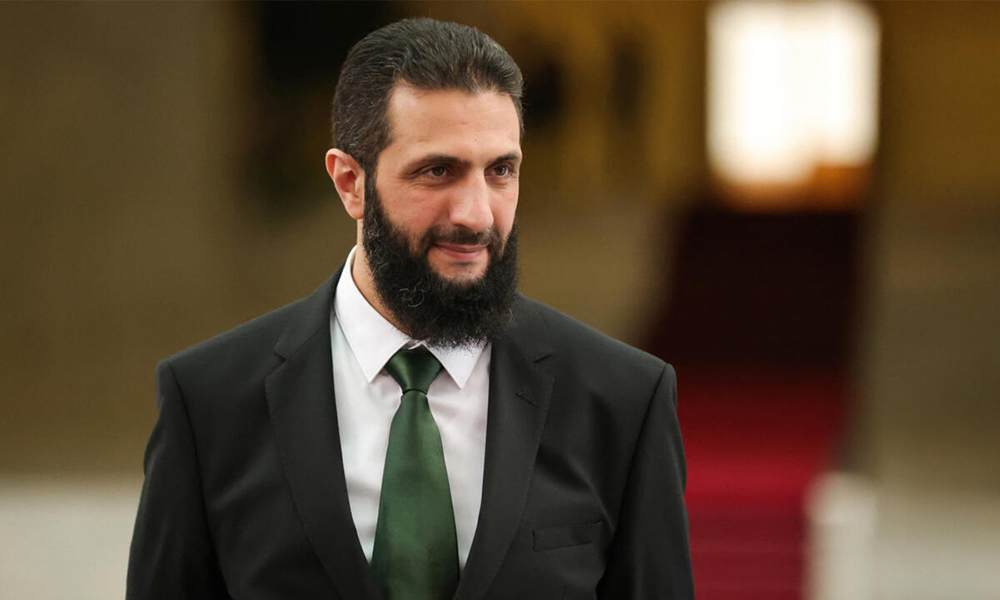
French President Emmanuel Macron will host a meeting with Syria’s President Ahmed al-Sharaa in Paris on Wednesday, the French presidency said on Tuesday.
During the meeting, Macron will reaffirm France’s support for the construction of a “free, stable and sovereign Syria that respects all the components of the Syrian society,” the statement said.
The visit, the first for Sharaa to a European country since the overthrow of Bashar al-Assad, is expected to address several security challenges faced by the new Syrian government, with particular emphasis on the repeated Israeli attacks on Syria’s sovereignty, according to the state-run Syrian news agency SANA.
Sharaa in February received an invitation from Macron to visit France, Reuters reported.
In January, Sharaa was named as interim president and pledged to form an inclusive transitional government that would build up Syria’s gutted public institutions and run the country until elections, which he said could take up to five years to hold.
Israel has escalated military operations in Syria since rebels ousted Assad in December, with bombings across the country and ground forces entering its southwest, while calling for Syria to remain decentralised and isolated, read the report.
It has framed its stance around its suspicion of Sharaa – who once headed a branch of al Qaeda before renouncing ties to the group in 2016 – and a desire to protect the Druze, a minority sect that is an offshoot of Islam with followers in Syria, Lebanon and Israel.
-

 Regional5 days ago
Regional5 days agoIran’s foreign minister urges restraint in India, Pakistan standoff
-

 Latest News4 days ago
Latest News4 days agoCabinet Meeting convened to discuss Afghanistan’s population census plan
-

 International Sports5 days ago
International Sports5 days agoIPL 2025: Seven teams fighting for four spots
-
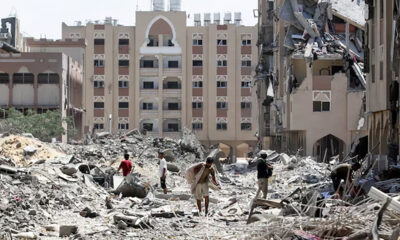
 World5 days ago
World5 days agoIsrael may seize all Gaza in expanded operation, officials say
-

 Regional4 days ago
Regional4 days agoAt least 26 civilians killed in Indian strikes on Pakistan: Islamabad
-
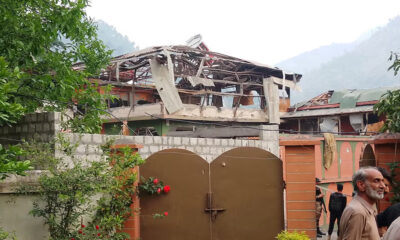
 Regional4 days ago
Regional4 days agoIndia strikes Pakistan over Kashmir tourist killings
-

 Science & Technology4 days ago
Science & Technology4 days agoSkype ends operations after 22 years of service
-

 Latest News4 days ago
Latest News4 days agoIslamic Emirate of Afghanistan ‘concerned’ over rising tensions between Pakistan and India








